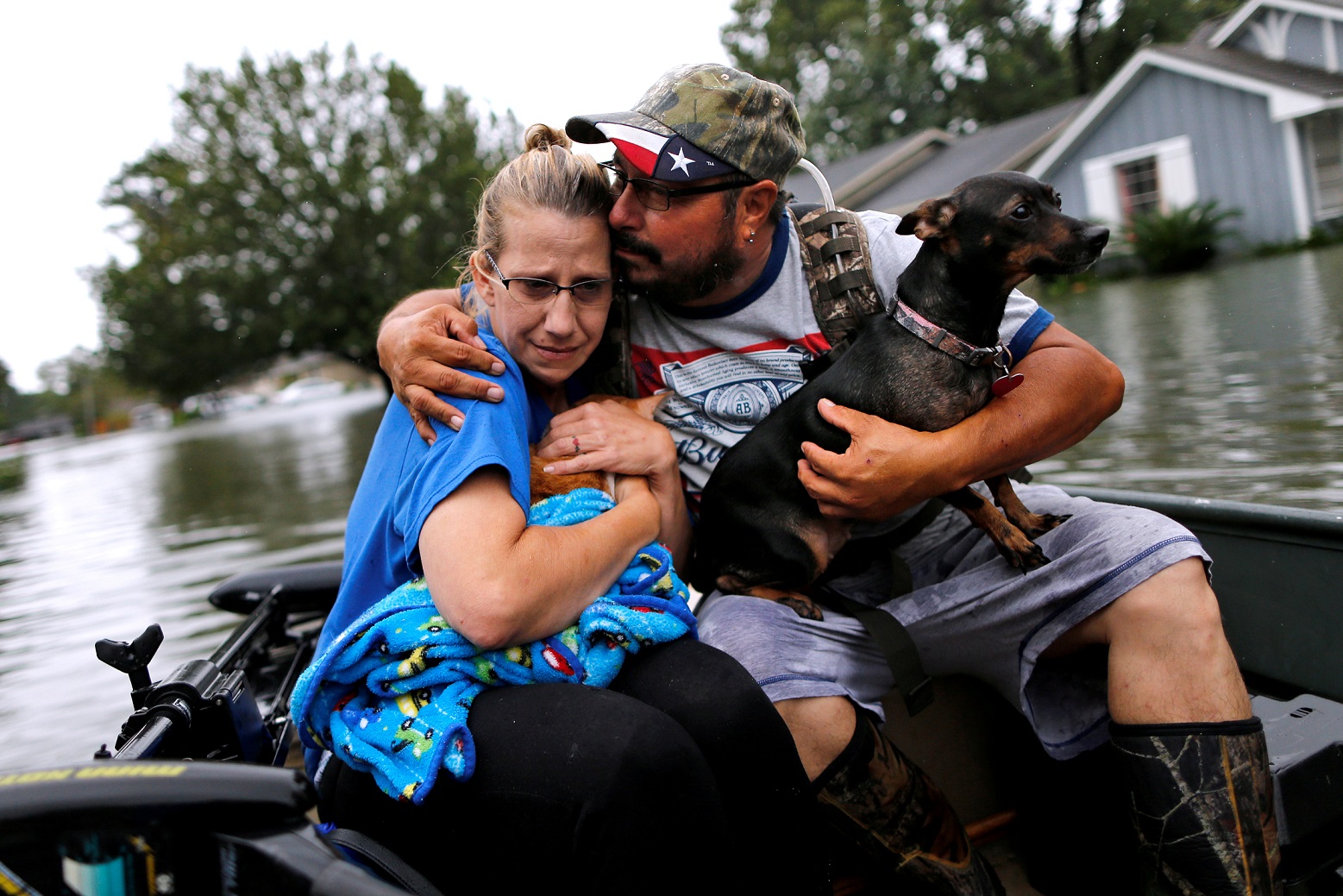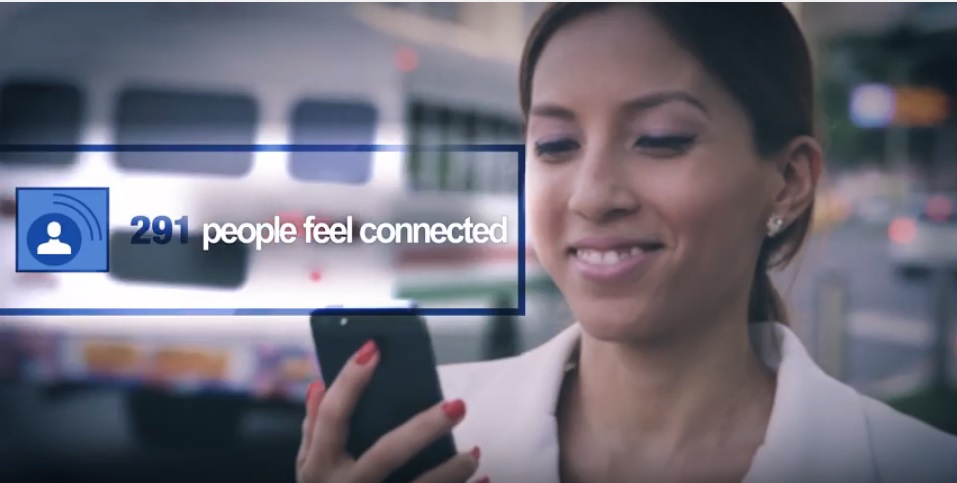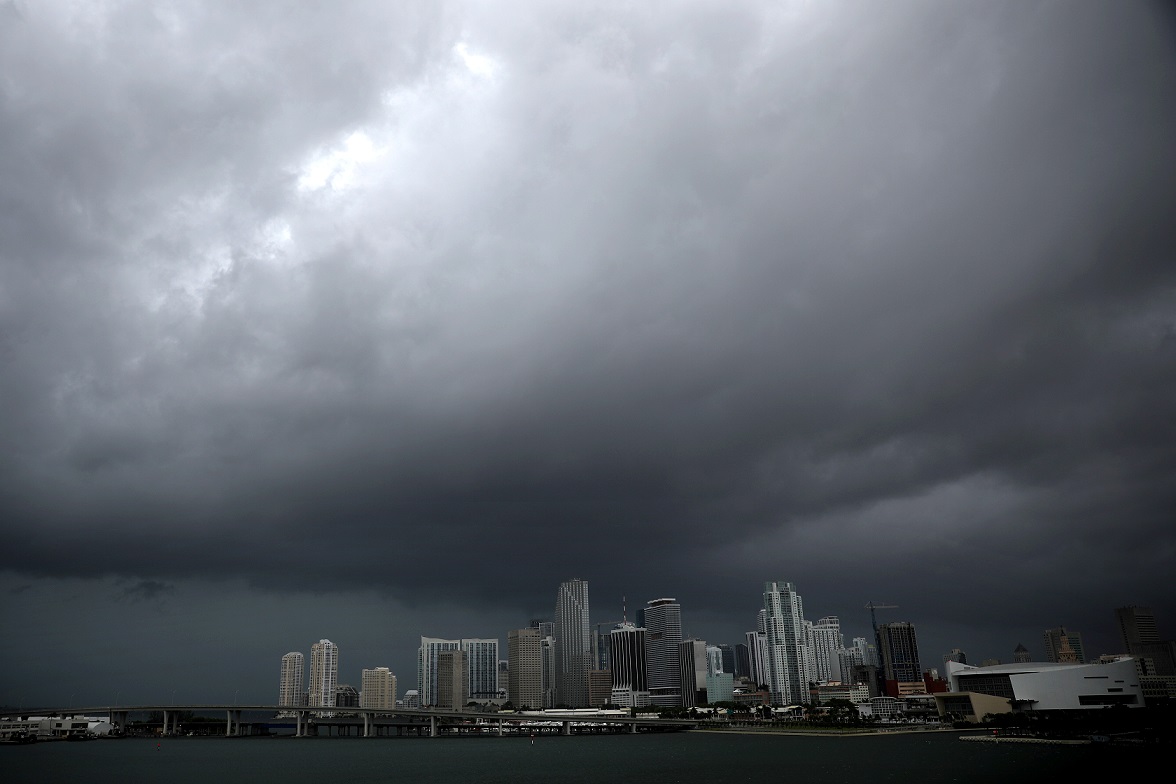Nature is a holistic system, with infinite numbers of elements on numerous levels, yet intricately connected as a single whole, with every influence on every level rippling throughout the entire system. “It’s hard to imagine that organisms you can’t see make a difference,” says marine ecosystems specialist, Prof. Mike Behrenfeld of Oregon State University, “you look out in the ocean and you see water, but that water is just teeming with millions and millions of tiny organisms, and when you sum them up, they have a huge impact.” For example, it is estimated that 70 to 80 percent of the Earth’s oxygen is produced by single celled, photosynthetic algae!
What’s even harder for us to grasp is that we, too, are part of nature. And our influence on the system includes not just our mechanical actions, but also how we treat and relate to each other.
So, when we think about a recovery plan following the destruction left by Harvey and Irma, there’s more than a financial challenge to consider. If we wish for lasting stability and balance with nature, we must include our fractured society as a variable in the equation for healing.
Think about it. Irma and Harvey were basically telling us that we are one in the eyes of nature. Neither our origin, religion, skin color, nor bank account, make any difference when a hurricane strikes. And there’s no doubt a collective struggle for survival strengthens our “unity muscle”. However, that doesn’t mean we should wait for disasters to awaken our sense of unity.
Instead, our sense of unity should be continuously cultivated. We should think of our unity as the force that determines our social resilience and ability to endure threats. The power of our unity should be no less important to us than the power supply that runs our cities. And even when our cities are left in the dark, the power of unity must always prevail.
When a community in Coral Springs, Florida, collected supplies to help flood victims in Texas, they gave a practical example for how we can build a network of solidarity and mutual concern. If we consistently work together to forge such networks of positive relationships between us, we won’t just be safer in times of threat, we will rise to a whole new level of human experience.
By creating ripples of mutual care and positive intentions between people, we will begin to sense the fact that we are all interconnected by nature and that humanity is connected with nature on every level. Then, we will see that being on good terms with nature is about much more than recycling or saving forests. First and foremost, it is about being on good terms with each other.
Just like the huge impact of millions and millions of tiny oceanic organisms that Prof. Behrenfeld talks about, the personal efforts made by each and every one of us towards a network of positive connection between us will amount to a tremendous force that will infuse our environment with a huge, beneficial effect. So even though it’s counterintuitive to us, a hurricane of love and compassion could be exactly what we need to bring nature back to balance.
[/et_pb_text][et_pb_text text_orientation=”center” max_width=”900px” _builder_version=”3.0.72″ text_font=”PT Serif||||” text_font_size=”48″ text_font_size_tablet=”38″ text_font_size_last_edited=”on|tablet” text_text_color=”#363636″ text_line_height=”1.3em” background_size=”initial” background_position=”top_left” background_repeat=”repeat” custom_margin=”16px||30px|” background_layout=”light” border_style=”solid” module_alignment=”center”]
By creating ripples of mutual care and positive intentions between people, we will begin to sense the fact that we are all interconnected by nature and that humanity is connected with nature on every level.
[/et_pb_text][/et_pb_column][/et_pb_row][et_pb_row custom_padding=”50px|||” padding_mobile=”on” column_padding_mobile=”on” parallax_method_1=”off” _builder_version=”3.0.47″ background_size=”initial” background_position=”top_left” background_repeat=”repeat”][et_pb_column type=”4_4″][/et_pb_column][/et_pb_row][/et_pb_section]










